The quest for the ultimate tent stake
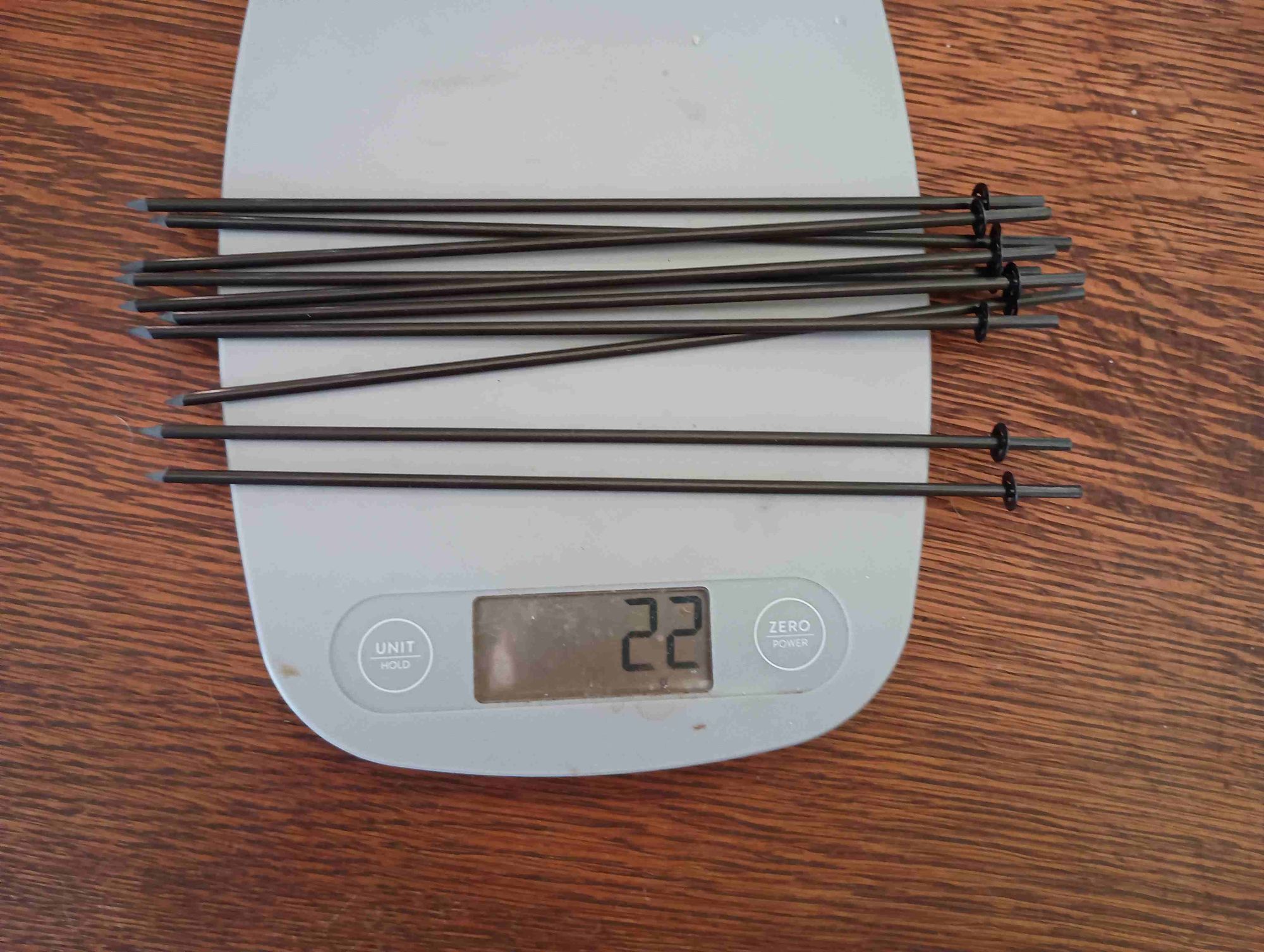
When you become a UL gram weenie, you start looking at how much things weigh and for ways to eliminate unnecessary items, find dual/multi-use items, or find lighter items. In that light, I've kind of been obsessed for a couple years with how much tent stakes weigh. Individually they're not that bad - but you need 4-12 of them depending on what tent or tarp you are using. So if your tent uses 10 tent stakes, and you bring 15 gram stakes, you've got 150 grams (5.3 ounces) just in tent stakes.
Tent stakes are a balancing act of multiple factors: holding power, weight, cost, and durability. At one end of the spectrum is the aluminum Y stake shown, which I got from Amazon for less than $1 each. These are cheap and hold well, but heavy, and I've bent a couple just by tripping over them or hammering them to drive them into the ground. A set of 10 of these would be 160 grams / 5.7 ounces.

Another popular choice - one that comes standard on many tents, is a DAC Aluminum V-stake. These are quite tough/durable, hold pretty well, and are essentially "free" since they often come with a tent. However, they're 11 grams each, so a set of 10 would be 110 grams / 3.9 ounces.
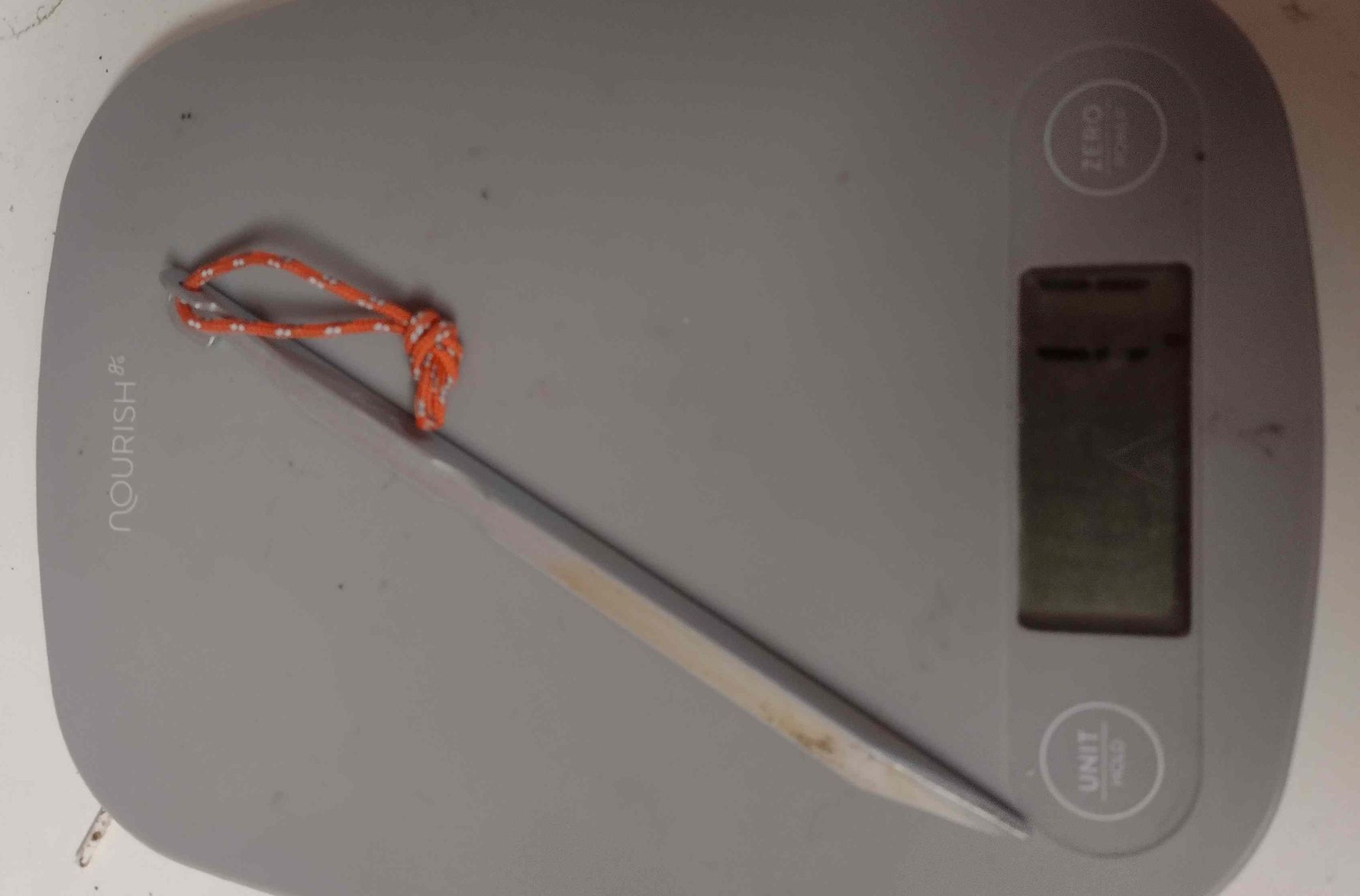
The backpacking world has more-or-less come to the consensus that the best overall balance of these factors is the MSR Mini Groundhog. At 9 grams and $3 each, they are an expensive solution, but hold very well and are extremely rugged/durable. I can't count how many times I've bashed them into hard ground with a rock, and I've never broken one. I've mushroomed the heads over, but never bent or broken one. Indeed, I've had instances where driving them into hard ground I've actually shaved parts of aluminum off of the stake.
I consider the MSR Mini Groundhog to be my baseline. Every other tent stake is compared to it in terms of weight, durability, and holding power. Cost is a factor, but if it does well on the other 3 criteria, I'll pay the money to get performance - so long as it's not absurd.
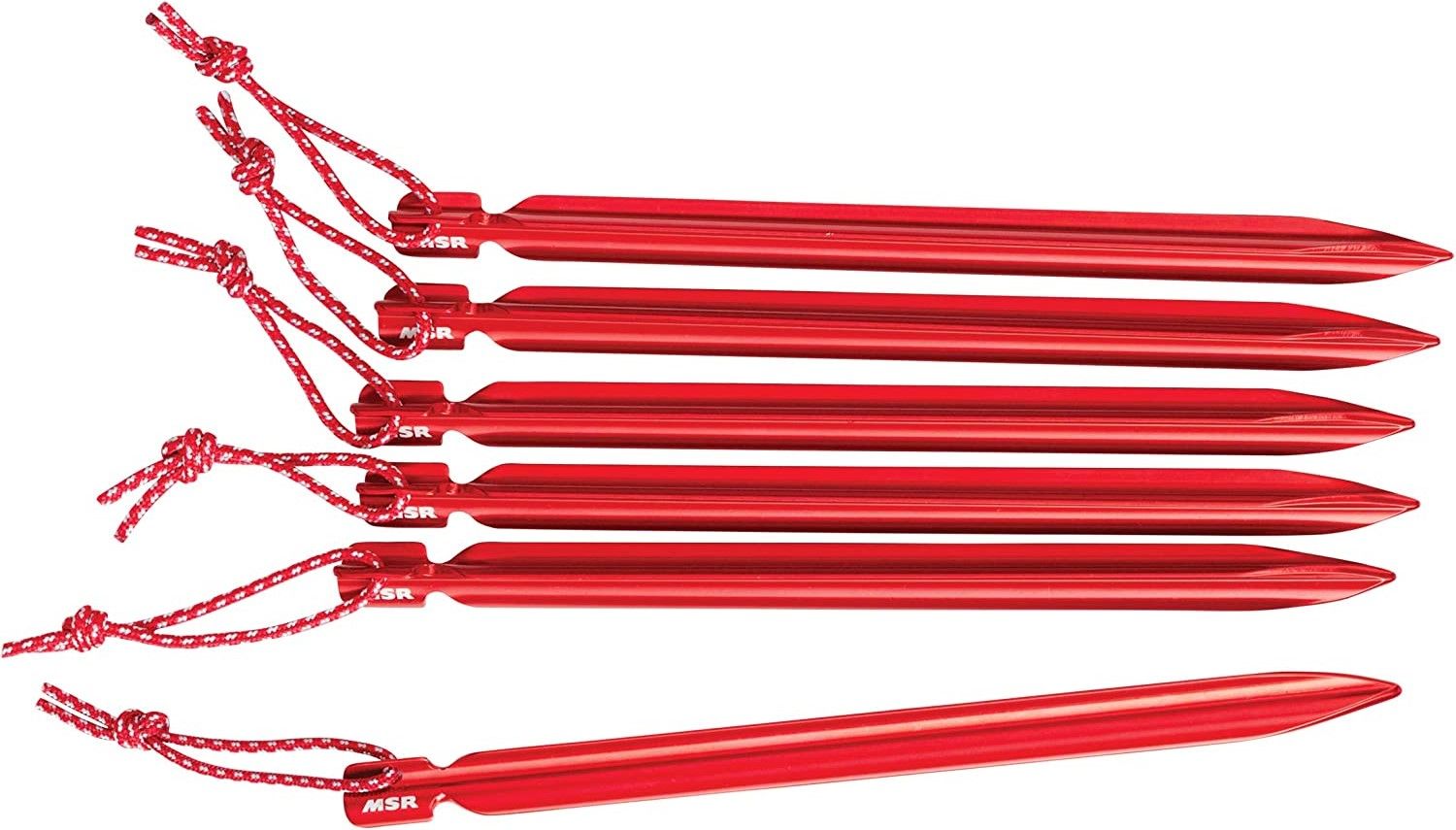
Contender #1 is the Vargo titanium shepherd hook stakes available from Amazon. They weigh 8.2 grams and cost about $2 each. However, they don't hold nearly as well as the MSR, and are not even close to being durable or rugged. They're pretty bendy. Personally I'm not willing to give up the durability and holding power for a 1 gram savings. 3 or 4 grams maybe for some applications, but not 1 gram.
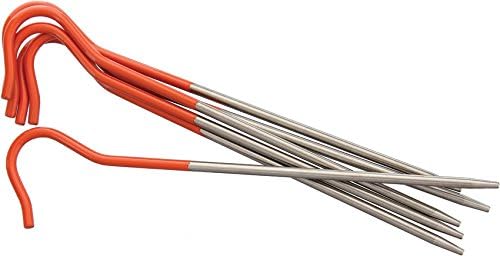
Contender #2 is the Ruta Locura titanium stake. They weigh 5.7 grams and cost about $2.50 each. They are thinner diameter than the standard titanium shepherd hooks you can get from Amazon, which is why they are lighter. Along with that smaller diameter, they are even more bendy, and have less holding power. They are 3.3 grams lighter than an MSR. I've used them in very low stress applications - like the door tie outs on my Durston tents, and for secondary stake locations like the corners of my bivy sack.
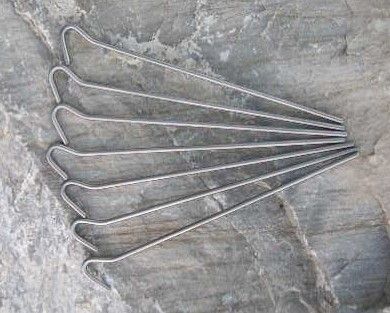
There are a number of carbon fiber stake options out there that I've seen. All of them boast lighter weights, but durability has been a big concern. Contender #3 is the @ Stakes, which are made out of carbon fiber arrow shafts. They're super light - at 3.5 grams each - and may work well in very soft soils typical on the east coast - but I've broken most of them pretty quickly here in Texas. And they're darn expensive at $8 each. Holding power was better than a shepherd hook due to the larger diameter of the arrow shaft, but not nearly as good as a Y stake, V stake, or MSR Mini Groundhog. As for failure modes, the most common failure mode I've seen is the aluminum tip splitting the carbon fiber tube. The second most common one is the shaft snapping in the middle somewhere. All fractures I've had occurred while trying I was trying to install the stakes.
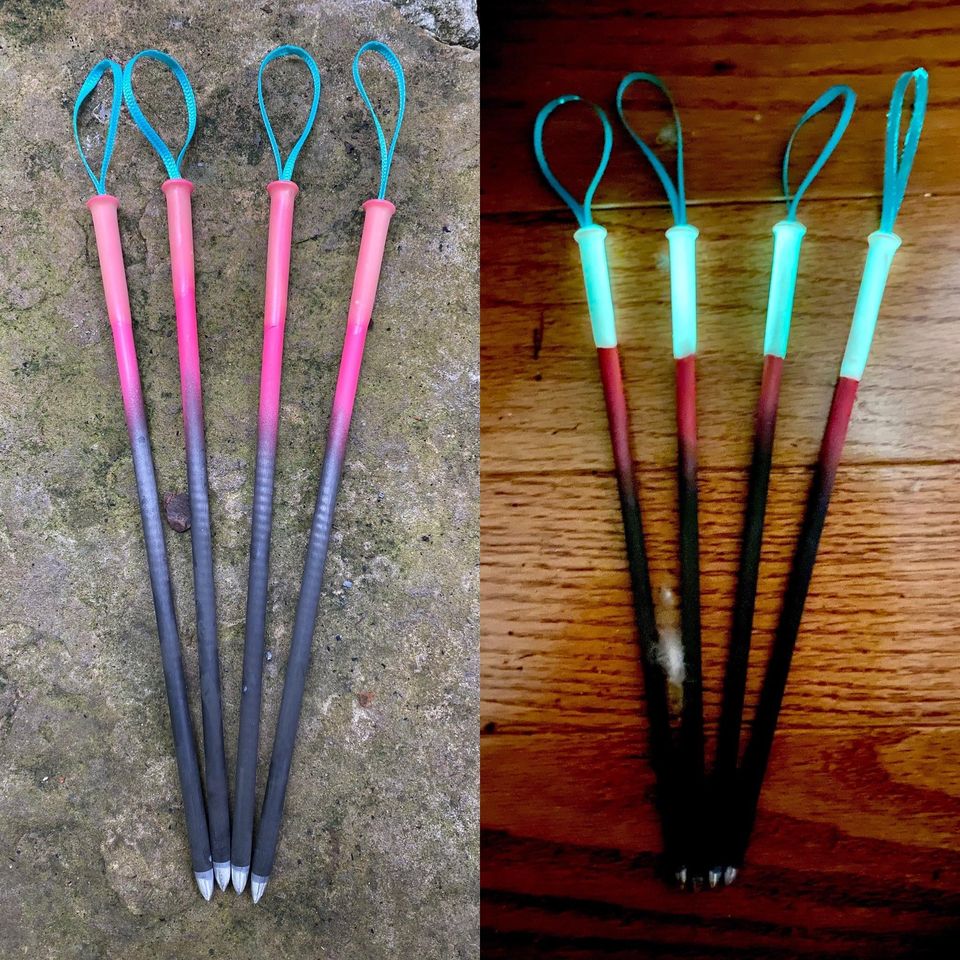
Contender #4 are carbon fiber stakes from either Zpacks or Ruta Locura. They cost $2.25-$4.00 and weigh ~6 grams each. I've never personally owned these, but Chris Spears has, and he snapped the heads off of them. They held well (even better than the @ Stakes, due to an even larger diameter), but durability is still a concern.
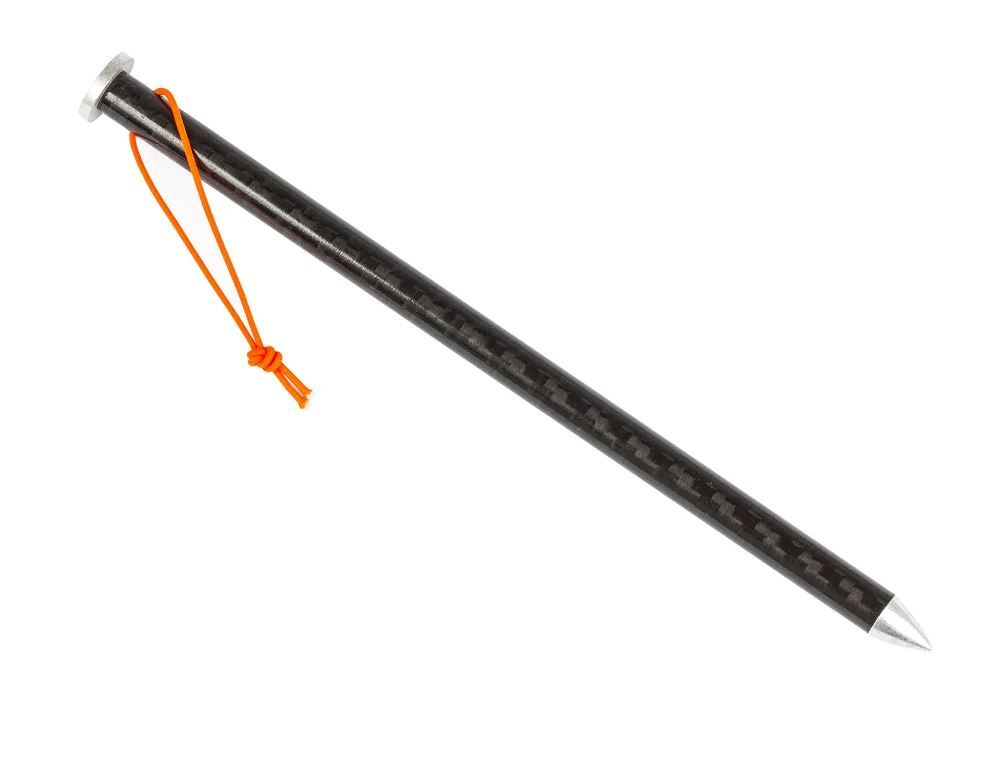
Contender #5, at the extreme end of the cost spectrum, are the MSR "carbon core." They weigh 5 grams, but cost almost $12 each. Supposedly they have a solid carbon core inside an aluminum sleeve with plastic tip and head. Reviews I've read are mixed. Some say they are durable. Others say they've broken them. I like the idea of solid carbon fiber rod as I think those would be far superior to the hollow tubes that typify the other carbon fiber offerings I've seen. However, I'm not willing to spend $12 each on an experiment to save 4 grams per stake over Mini Groundhogs.
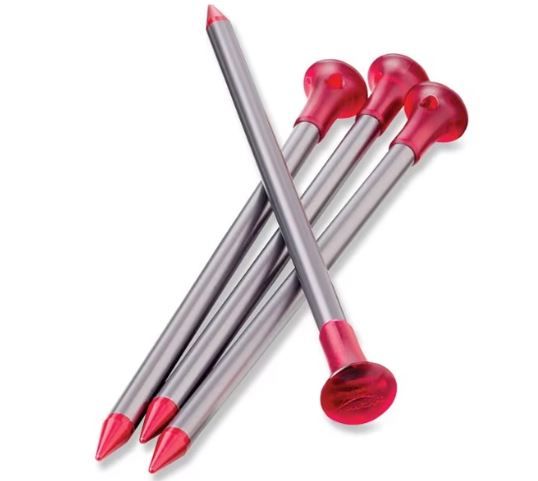
Contender #6: I've often wondered if I could MYOG a stake out of a solid carbon fiber rod and if that would be strong enough. Certainly I wouldn't be able to hammer it in, but it might work in any application where a shepherd hook worked. I came across a post on reddit where someone had the same idea and claims they work OK. He provided links to Amazon for the components to MYOG them. So I've made a set. They're about $2 each. And they weigh 2.2 grams. Will they work? I'm going to take them out on the Appalachian Trail section hike between Vermont and New Hampshire next week and find out!
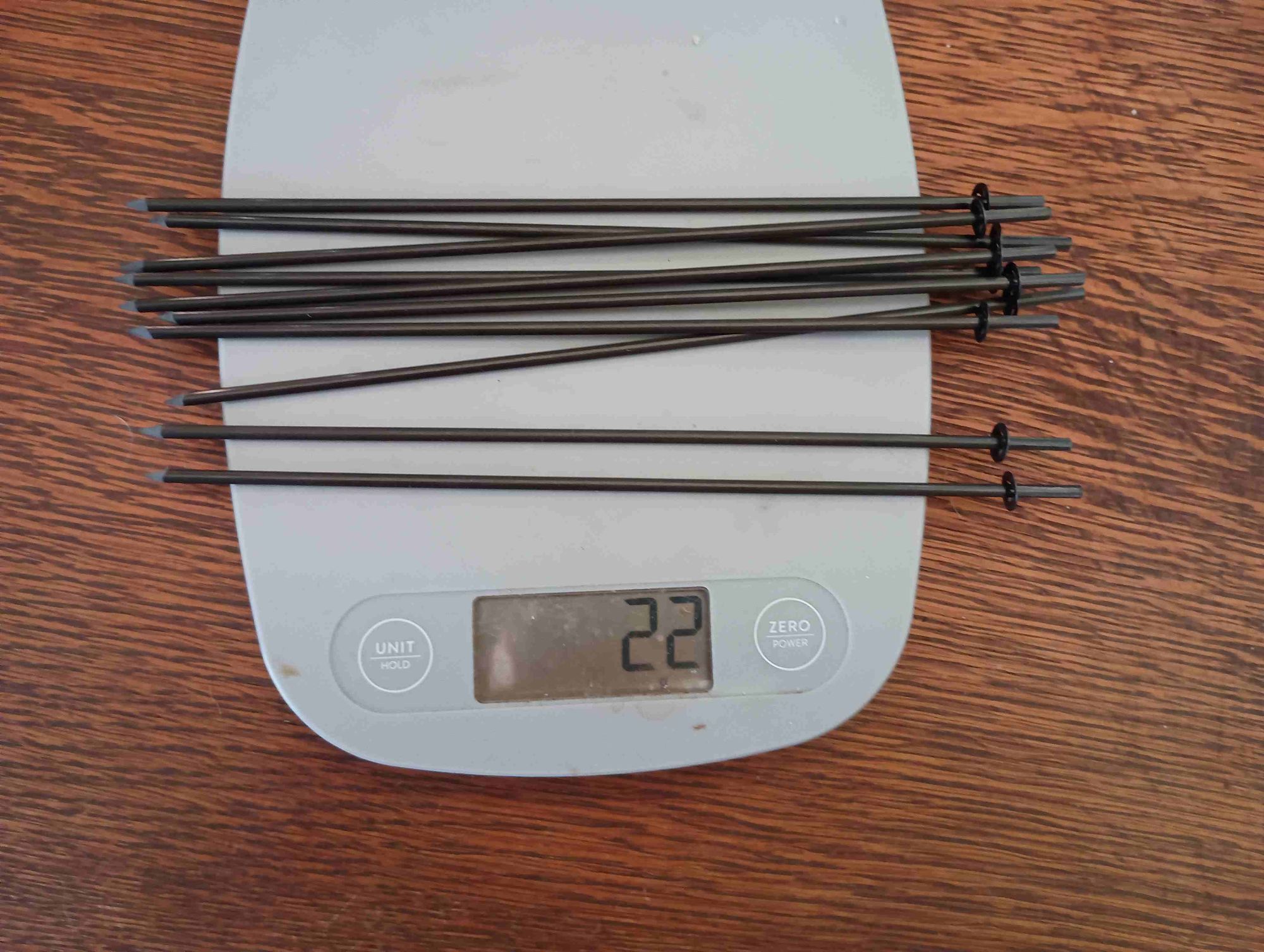
9/15/23 update: I only had to pitch a tent one time on my AT hike, but these stakes worked great. The soils in the east (at least where I was) are MUCH softer than anything I've been on in Texas, New Mexico, or Colorado. Pretty much any tent stake out there could be pressed into the ground with your hands or feet - no hammering was required. If you frequent those kind of conditions, these carbon-fiber MYOG stakes seem to be the optimal solution.
Keep hiking my friends.

